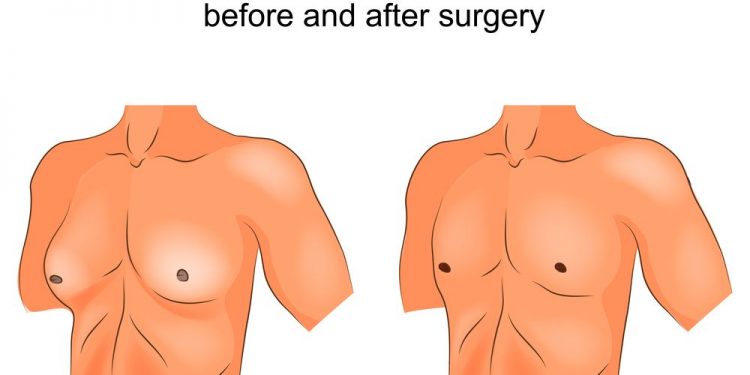Gynecomastia is a condition that causes breast tissue to swell. It may be unilateral or bilateral, and is most often caused by a hormonal imbalance. Depending on the cause, gynecomastia can be treated or resolved on its own. However, it can also lead to emotional and psychological problems. There are several underlying medical conditions that may contribute to gynecomastia, as well as a number of medications that can aggravate the situation.
Some of the most common gynecomastia symptoms include enlarged breasts, breast pain, and firm and rubbery breasts. In addition, men with gynecomastia may develop a lump in the breast or a discharge from the nipple. If you notice any of these symptoms, see your doctor.
In most cases, gynecomastia resolves on its own. The most common cause of gynecomastia is an imbalance of the female hormone estrogen and the male hormone androgen. Other factors, such as an overactive thyroid, can also cause gynecomastia. Many men experience gynecomastia, and they often seek help to reduce the size of their breasts.
Although there is no known relationship between gynecomastia and breast cancer, some tests are required to rule out the possibility of a cancer diagnosis. Often, a low-dose X-ray or ultrasound of the breast is used to look for abnormalities in the internal structure of the breast. A lump in the breast, or a discharge from the nipple, is considered a possible symptom of breast cancer.

A number of medical conditions can cause gynecomastia, such as a kidney or liver disorder, a hormonal imbalance, or an infection. You can also develop gynecomastia from taking certain medications, such as anabolic steroids and drugs for high blood pressure. For men, a medication called Tamoxifen can reduce the amount of hormones in the body that cause gynecomastia.
In some extreme cases, surgery and other types of treatment are needed to correct gynecomastia. Liposuction can be used to remove excess breast tissue. The procedure is typically performed in an outpatient center, and patients are usually back to normal activities within a week. Depending on the underlying cause of the disease, the patient may be given medications to relieve the symptoms and prevent the condition from recurring.
Patients with gynecomastia should avoid drinking alcohol, smoking, and eating spicy foods. These habits may damage the liver and cause other health complications. Additionally, you should avoid using medications with high levels of estrogen. Drugs such as tricyclic antidepressants, calcium channel blockers, and ulcer drugs can cause gynecomastia, too.
If you are suffering from gynecomastia, you can seek counseling to help you deal with the emotional and physical effects of the disorder. A group therapy session can help you to deal with the embarrassment that comes with having enlarged breasts. You may also consider getting a medical professional to help you cope with the anxiety and depression that come with having enlarged breasts.
While gynecomastia often resolves on its own, a patient with advanced symptoms might require hormone therapy or surgery. An endocrinologist can determine the cause of gynecomastia, diagnose it, and help the patient treat it.









